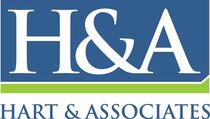|
Seeing purchases your friends post on social media can leave you envious – and might also foster a desire to buy a similar item. That can be a problem if your goal is long-term financial freedom, because spending money on items you may not need can derail your plans. Three simple habits can help you stay on track. 1. Live below your means. Living below your means requires that you discover what those “means” are. To find out, use a budget app, an online financial site, or old-school pencil and paper to track your income and expenses over a month or more. You'll learn how much disposable income you receive and what your spending habits are, and you might be surprised at how your money habits hurt your finances. By spending less on non-essentials, you'll be able to save for the future and develop long-term wealth. 2. Save for emergencies. By setting aside money in easily accessible accounts, you avoid racking up credit card bills when unexpected expenses occur. Such expenses could include your out-of-pocket costs for trips to the emergency room, repairs to the family car, or patching a hole in the roof. A reserve fund can also help you survive periods of unemployment without incurring additional debt. 3. Use debt wisely. Necessary debt can generally be linked to appreciating assets, such as your home mortgage, or assets used to generate income, such as a basic car for getting to work or school. Unnecessary debt, on the other hand, might include routine credit card charges or installment loans for depreciable items. Ask yourself whether you can pay off new debt from next month's income. Making smart financial decisions isn't glamorous or easy, and requires more than a little self discipline. Your reward for persevering: substantial long-term benefits. This is general information and should not be acted upon without first determining its application to your specific situation. Please contact your CPA or tax advisor for additional details.
When you take a distribution from your IRA or qualified plan with the intention of depositing it, or “rolling it over,” into another IRA or qualified plan, the 60-day rule says you're required to complete the rollover within 60 days of receiving the distribution. In the past, when you missed the deadline, you generally had to request relief from the IRS. That meant paying a fee and going through a process to obtain a written statement waiving the rule. Now, the IRS says that in some cases you can “self-certify” by submitting a written letter to your financial institution or trustee explaining why you missed the 60-day deadline. Your error must be one of eleven allowable reasons, such as death or serious illness in your family, severe damage to your principal residence, or misplacing and never cashing the distribution check. If you are in this position, contact your CPA or financial advisor for more information. This is general information and should not be acted upon without first determining its application to your specific situation. Please contact your CPA or tax advisor for additional details
Are you confused about your choices for paying medical expenses under your employer's benefit plan? Here are differences between two types of commonly offered accounts: a health savings account (HSA) and a health care flexible spending account (FSA). Overview An FSA is generally established under an employer’s benefit plan. You can set aside a portion of your salary on a pretax basis to pay out-of-pocket medical expenses. An HSA is a combination of a high-deductible health plan and a savings account in which you save pretax dollars to pay medical expenses not covered by the insurance. Contributions For 2016, you can contribute up to a maximum of $2,550 to an FSA. Typically, you have to use the funds by the end of the year. Why? Unused amounts are forfeited under what’s commonly called the “use it or lose it” rule. However, your employer can adopt one of two exceptions to the rule. If you are single, the 2016 HSA contribution limit is $3,350 ($6,750 for a family). You can add a catch-up contribution of $1,000 if you are over age 55. You do not have to spend all the money you contribute to your HSA each year. You can leave the funds in the account and let the earnings grow. Earnings FSAs do not earn interest. Your employer holds your money until you request reimbursement for qualified expenses. HSAs are savings accounts, and the money in the account can be invested. Earnings held in the account are not included in your income. Withdrawals Distributions from both accounts are tax- and penalty-free as long as you use the funds for qualified medical expenses. Portability Normally, your FSA stays with your employer when you change jobs. Your HSA belongs to you, and you can take the account funds with you from job to job. That’s true even if your employer makes contributions to your HSA for you. Because you generally can’t contribute to both accounts in the same year, understanding the differences can help you make a decision that best fits your circumstances. This is general information and should not be acted upon without first determining its application to your specific situation. Please contact your CPA or tax advisor for additional details.
Did you file all required information returns for 2015 and earlier years? Information returns include Forms 1099, the forms you complete when you pay for certain business expenses such as rent or services performed by an independent contractor. This is the time of year the IRS typically begins sending notices for prior year information returns with missing and incorrect taxpayer identification numbers, and the penalties for errors continue to rise. If you get a notice, you may be able to get penalties waived by proving you acted in a responsible manner before and after the error. One way to do this is to document your request for a taxpayer identification number from the vendor or other payee. You may also need to begin withholding income tax known as backup withholding from payments. Contact your CPA or financial advisor for more information. This is general information and should not be acted upon without first determining its application to your specific situation. Please contact your CPA or tax advisor for additional details
Typically, you’ll have beneficiaries for each of your IRAs, your 401(k) or other retirement plans, annuities, and insurance policies. Your designations could be out of date because of life changes. For example, since you made your initial choices, you might have married, had children, or divorced. Some of the beneficiaries you chose could have died, divorced, or married. Changing tax laws also affect beneficiary designations. Choosing the wrong beneficiary, or failing to name a contingent beneficiary, can affect the long-term value of your IRA assets after you die. Make reviewing and updating beneficiary designations part of your year-end financial review. This is general information and should not be acted upon without first determining its application to your specific situation. Please contact your CPA or tax advisor for additional details.
|
AuthorSuccessfully meeting the challenges inherent to new and smaller businesses provides me with a special type of satisfaction. Archives
February 2022
Categories
All
|





 RSS Feed
RSS Feed







